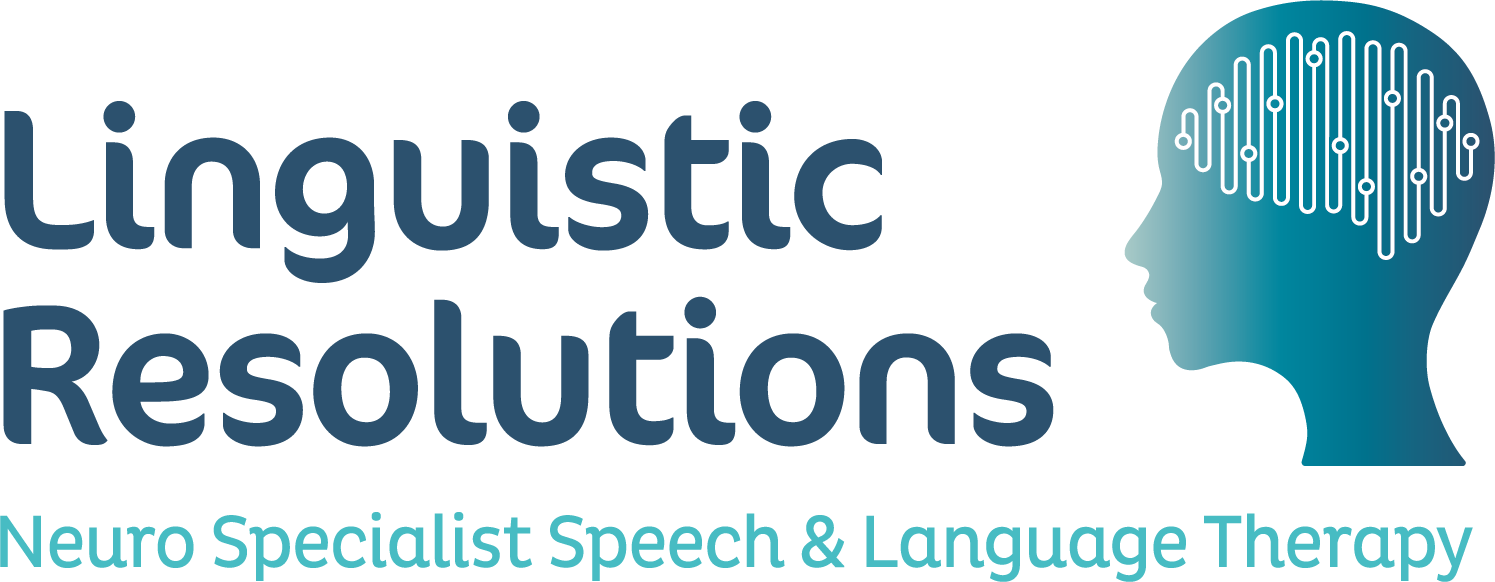Following an acquired brain injury various communication and swallowing difficulties can result. These can range from very subtle changes to profound difficulties.
Every individual is different but sometimes we have a good idea of how a client may present before we meet them based on their brain scan results. This is because specific parts of the brain control the different types of communication, cognition and swallowing. Knowing where the damage has occurred is powerful knowledge for SLT assessment and treatment.
Communication Disorders Following Brain Injury
“Language, that most human invention, can enable what, in principle, should not be possible. It can allow all of us… to see with another person’s eyes.”
Dysphasia / Aphasia – an acquired language disorder resulting in difficulties in some or all language modalities – understanding, speaking, reading, writing.
Cognitive Communication Disorders - difficulties with communication competence (listening, speaking, reading, writing, conversation interaction) that result from underlying cognitive impairments (attention, memory, organisation, information processing, problem solving and executive function).
Motor Speech Disorders such as dysarthria (muscular control difficulties affecting speech output / clarity) and dyspraxia (difficulties planning the movements for speech).
Neurogenic Dysphonia or voice changes / problems secondary to a neurological event.
"My husband Kim suffered a major left brain stroke which has left him with severe dysphasia and dyspraxia. Sally and her team have been our lifeline. Their psychological understanding of what Kim is going through, their professional skill developing therapeutic approaches to help him begin to recover his speech, reading, writing and cognition are ongoing and are, I am convinced, the determining factor in how well he is recovering”
Sarah Fraser, London
“This profession is certainly not given enough credit....The best therapists turn around lives that appear to be wrecked. For Edwyn, speech and language therapy has given him back meaningful life. Simple as that.”
Grace Maxwell, London
Swallowing Disorders Following Brain Injury
Eating and swallowing are complex behaviours involving volitional and reflexive activities of more than 30 nerves and muscles. They have two crucial biological features: food passage from the oral cavity to stomach and airway protection.
The medical term for swallowing difficulties is dysphagia. Broadly speaking we can describe dysphagia in terms of:
Oral stage difficulties
Pharyngeal stage difficulties
Oesophageal stage difficulties
We may need to use instrumental means to assess swallowing difficulties and to help direct dysphagia treatment. We have access to adult Videofluroscopy and FEES (Fibreoptic Endoscopic Evaluation of Swallowing) clinics at various teaching hospitals in London and paediatric Videofluroscopy at a world famous London children’s hospital.
“My husband suffered a catastrophic head injury nearly 22 years ago… one consistent problem has been a severely impaired swallow. Finding a specialist neuro team with expertise in the area of dysphagia has been such a relief. We saw Simon Grobler of Linguistic Resolutions. The approach has been straight forward, sensitive and insightful. The team use their up to date knowledge and have been realistic in seeking a way forward acceptable to all involved but most importantly to my husband. I am so glad that we found them and hugely reassured that everything possible is being done to enhance quality of life. I am eternally grateful for their intervention.”
Jane Frappart, Folkestone, Kent


![shutterstock_1310641163 [Converted].jpg](https://images.squarespace-cdn.com/content/v1/5d5b0b726611d5000180c6b9/1569778652502-TIK9B5EF6XOUKW9X0EGK/shutterstock_1310641163+%5BConverted%5D.jpg)

